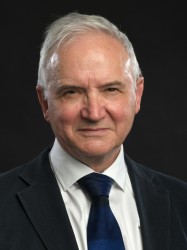BibTex format
@article{Needham:2022:brain/awac321,
author = {Needham, EJ and Ren, AL and Digby, RJ and Norton, EJ and Ebrahimi, S and Outtrim, JG and Chatfield, DA and Manktelow, AE and Leibowitz, MM and Newcombe, VFJ and Doffinger, R and Barcenas-Morales, G and Fonseca, C and Taussig, MJ and Burnstein, RM and Samanta, RJ and Dunai, C and Sithole, N and Ashton, NJ and Zetterberg, H and Gisslén, M and Edén, A and Marklund, E and Openshaw, PJM and Dunning, J and Griffiths, MJ and Cavanagh, J and Breen, G and Irani, SR and Elmer, A and Kingston, N and Summers, C and Bradley, JR and Taams, LS and Michael, BD and Bullmore, ET and Smith, KGC and Lyons, PA and Coles, AJ and Menon, DK and Cambridge, NeuroCOVID Group the CITIID-NIHR COVID-19 BioResource Collaboration and Cambridge NIHR Clinical Research Facility},
doi = {brain/awac321},
journal = {Brain: a journal of neurology},
pages = {4097--4107},
title = {Brain injury in COVID-19 is associated with dysregulated innate and adaptive immune responses},
url = {http://dx.doi.org/10.1093/brain/awac321},
volume = {145},
year = {2022}
}

